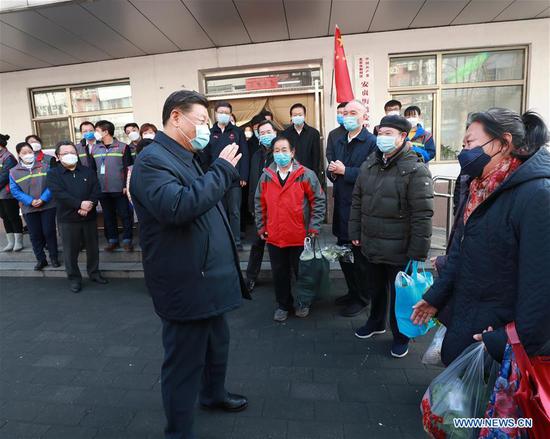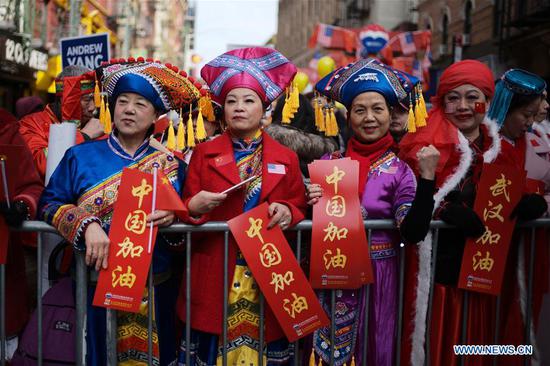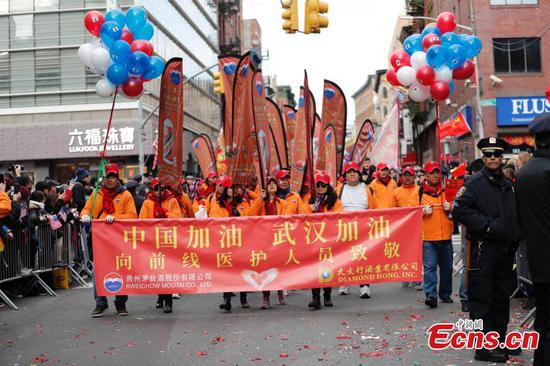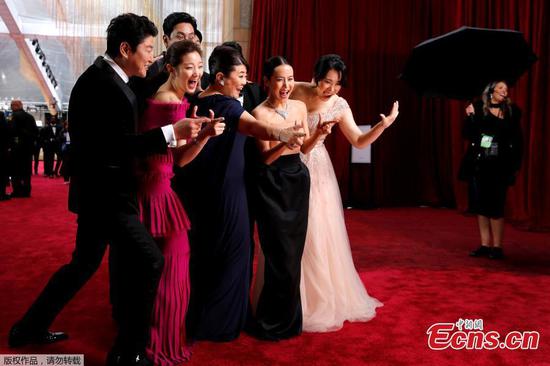Oscars 2020 topped the trending list on China's Twitter-like Sina Weibo on Monday with more than 10 billion views and more than 5 million posts. South Korean thriller Parasite's historic victory at the awards also sparked heated online discussions in China.
At the 92nd Academy Awards held Sunday night in Los Angeles, South Korean director Bong Joon-ho's Parasite swept the ceremony by winning Best International Feature Film, Original Screenplay and Best Director as well as made history by becoming the first non-English language film to claim Best Picture at the Oscars.
Focusing on the story of a poor four-member family that wins the trust of a rich family and moves into their mansion, the movie is filled with black humor and reflects the theme of class alienation.
"To some extent, it is already half a miracle for a non-English language film to be nominated for Best Picture at the Oscars, as only 10 foreign language films in history have been nominated," wrote an article by DeepFocus, a Chinese film review blog.
On the one hand, Parasite's high-level production quality and darkly humorous take on social satire allowed it to sweep the awards; on the other hand, the Academy has been expanding its global vision and looking beyond English-language films, as the latter have been seen as stagnating when it comes to certain aspects, argued the article.
"Even though the film was surrounded by many highly competitive competitors, Parasite's success at the Oscars is no coincidence," it further noted.
The Best International Feature Film, one of the four Oscars taken home by Parasite, was formerly known as Best Foreign Language Film prior to this year.
"We have noted that the reference to 'Foreign' is outdated within the global filmmaking community," commented Larry Karaszewski and Diane Weyermann, co-chairs of the International Feature Film Committee in a statement issued in April 2019 about the name change.
"We believe that International Feature Film better represents this category and promotes a positive and inclusive view of filmmaking, and the art of film as a universal experience."
As the director for the first movie from South Korea to be nominated in the category and win, Bong Joon-ho said on stage, "I'm so happy to be its first recipient under the new name. I applaud and support the new direction that this change symbolizes," he said.
On Chinese media review site Douban, the film has earned a 8.7/10 from nearly 600,000 reviews. After its huge wins at the Oscars, many Chinese netizens are calling the film "a light for Asian films."
"It is a win for South Korea, as well as for Asia!" posted one Chinese netizen.
Chinese netizens also expressed hope that China can produce films at such a level, suggesting that the Chinese film industry expand its range of themes to be more realistic and critical as well as loosen censorship restrictions.
At the same time, despite their acknowledgment and appreciation of Parasite's success, some Chinese cinephiles were disappointed to see The Irishman by Martin Scorsese striking out in all categories that it was nominated in.
When accepting the award for best director, Bong quoted Scorsese, "Thank you so much. When I was young and studying cinema, there was a saying that I carved deep into my heart, which is that, 'The most personal is the most creative.' That quote was from our great Martin Scorsese." Scorsese stood up and accepted the massive applause that followed, a scene that touched many Chinese netizens.


















































